CALL TODAY 646-846-1136 | EMAIL
Surgical Experts Dedicated to Improving Lives
At Lenox Hill Minimally Invasive Surgery PLLC, Dr. Valery Dronsky and his staff of medical professionals provide compassionate care with the highest ethical & professional standards. In our state of the art facility, we offer surgical services using only the most cutting edge and current procedures and treatments. We specialize in general surgery, including extensive experience in performing hernia repair surgery. Our expertise is in minimally invasive surgery and robotic surgery. Minimally invasive and robotic surgery often allow patients to experience easier recovery than traditional open surgery. They also allow for more precise and less traumatic surgery. When robotic and minimally invasive surgery is not an option, we are also skilled and experienced in traditional open surgical procedures.
Dr. Dronsky is an experienced and highly skilled surgeon having undergone extensive training in school, residency and fellowships. He practices medicine with ethical behavior, compassion and superb bedside manner. In the operating room he exhibits precision mechanical abilities, analytical thinking and the ability to visualize tissue in three dimensions. These innate and learned skills allow Dr. Dronsky to be one of the most dexterous and skilled professionals in New York City and the Country.
Call us: 646-846-1136
PATIENT TESTIMONIALS
Recent Awards
We are honored and deeply appreciative to have consistently received prestigious awards and recognition year after year, establishing us as one of New York’s foremost hospitals for a wide range of general surgeries, safety measures, specialized procedures, and overall excellence in healthcare. At Lenox Hill Minimally Invasive Surgery, our unwavering commitment lies in delivering exceptional care and unwavering support to our patients, guaranteeing their safety and successful recovery throughout their entire surgical experience.
Hospital Quality Awards
 America’s 50 Best Hospitals Award™ (2023, 2022)
America’s 50 Best Hospitals Award™ (2023, 2022)
Top 1% in the nation for providing the highest clinical quality year over year.

America’s 100 Best Hospitals Award™ (2021)
Top 2% in the nation for consistently delivering clinical quality year over year.

America’s 250 Best Hospitals Award™ (2023, 2022, 2021)
Top 5% in the nation for consistently delivering clinical quality.

Patient Safety Excellence Award™ (2023, 2022)
Top in the nation for providing excellence in patient safety by preventing infections, medical errors, and other preventable complications.
Specialty Clinical Quality Awards

America’s 100 Best Hospitals for Cardiac Care Award™ (2023, 2022, 2021, 2020, 2019)
Superior clinical outcomes in heart bypass surgery, coronary interventional procedures, heart attack treatment, heart failure treatment, and heart valve surgery.

America’s 100 Best Hospitals for Coronary Intervention Award™ (2023, 2022, 2021, 2020, 2019)
Superior clinical outcomes in coronary intervention procedures (angioplasty with stent).

America’s 100 Best Hospitals for Prostate Surgery Award™ (2023, 2022, 2021)
Superior clinical outcomes in prostate removal surgery and transurethral resection of the prostate.
Click to see all of our Healthgrades best doctors awards
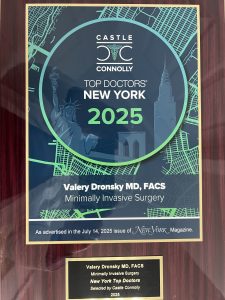
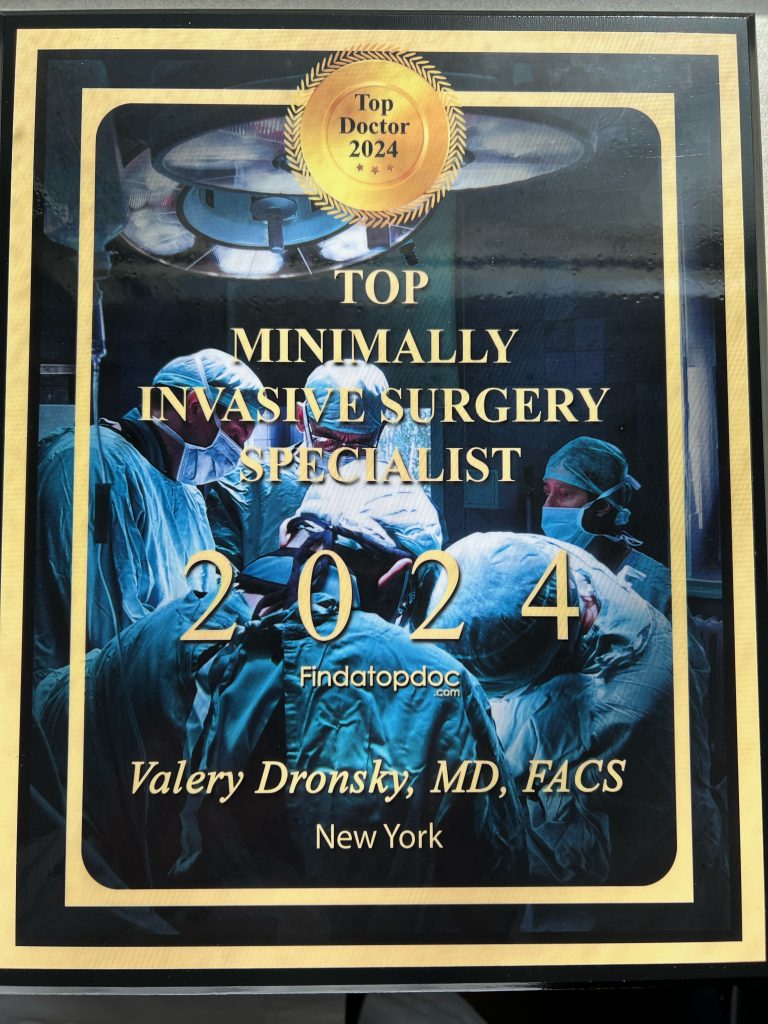
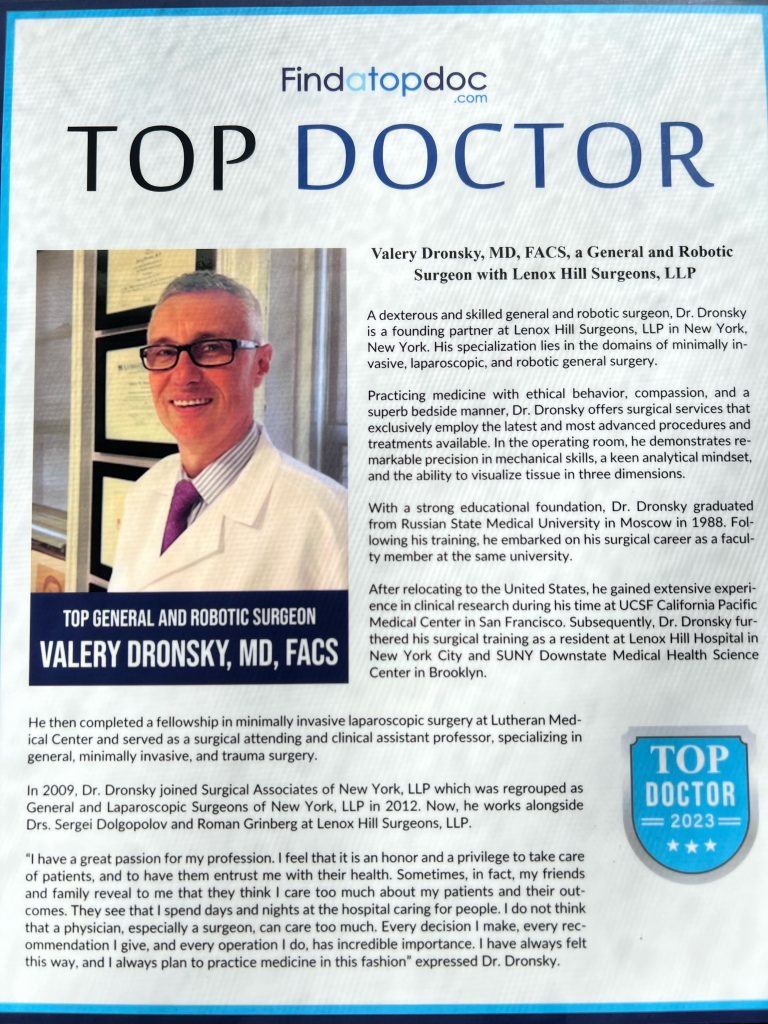


Visit our main website at www.LenoxHillMinimallyInvasiveSurgery.com
Blog Posts are Below:
Monthly Archives: July 2019
Hernia Repair Surgery – What to Expect
There are many different types of hernias; inguinal, femoral, umbilical, incisional, and more. Regardless of the exact diagnosis, every hernia has a few things in common. First and foremost, every hernia causes pain and discomfort. Whatever the location of the hernia, every hernia repair surgery has many similarities. If you are planning a hernia repair surgery, you likely have a few questions. What exactly is involved in hernia repair surgery? What will the recovery be like? How long until I can get back to doing the things I want to do without pain or discomfort?
Surgical Prep
The first step in hernia repair surgery is discussing your exact problems with your surgeon. Although many hernias are very similar, no two people are exactly alike. Instead, talk with your surgeon about the exact location of pain, what you have found that relieve pain, how long you have been dealing with your hernia, and other information about your specific case. Your doctor will likely have questions about your personal medical history, what medications you are currently taking, if you have a family history of hernias or other similar conditions, and more.
Surgical Procedure
There are two distinct surgical procedures used for hernia repair surgery. One technique is known as herniorrhaphy. In herniorrhaphy, the abdominal cavity is opened up and the lump of tissue, called the hernia sac, is removed or placed into the correct position. Any adjustments to internal organs that are needed are then made, including blocking any further protrusions. The muscular wall that is meant to hold the soft tissue in place is then repaired. In other cases, additional support to the muscular wall is required. In these situations, a layer of mesh is placed over the weak point in the muscular wall. This procedure is known as a hernioplasty.
In some rare cases, there are hernias on both sides of the body. This will call for a longer, more intensive surgery with a potentially longer stay. The two hernias may also require different procedures in order to deal with them in a minimally invasive but effective way. Once all internal adjustments have been made, the incision site is then stitched shut.
Recovery
Hernia surgery is typically an outpatient procedure, meaning that an overnight stay is not expected. However, extenuating circumstance may arise that require an extended stay. Instead, you may only need to spend a few hours in the recovery room. Here, the staff will monitor your vital signs and ensure that no obvious complications have arisen. A standard recovery from a hernia surgery for healthy patients is usually around three weeks. Within those three weeks or so, strenuous movements must be limited. This includes bending, lifting, and rigorous activity. Even once these basic restrictions have been lifted, avoid movements that cause pain to the incision site or the former location of the hernia. It will be important to discuss recovery time with your surgeon. Even though hernia repair surgery is a common procedure, every surgery and patient is different.
Your surgeon may have share different expectations for your recovery. Keep a close eye on the incision site and the former location of the hernia. Monitor for signs of swelling, infection, or reoccurrence. These are rare, but potentially serious outcomes. Talk with your doctor if any of these occur.
Are you preparing for hernia repair surgery? Schedule a consultation with the best surgeons in NYC to and plan for your surgery.
LENOX HILL MINIMALLY INVASIVE SURGERY
117 E 77th Street
Suite 1A
New York, NY 10075
646-846-1136
admin@lenoxmis.com
———
References
https://nyulangone.org/conditions/hernia-in-adults/types
https://www.uofmhealth.org/health-library/aba5300
https://www.webmd.com/digestive-disorders/need-surgery-hernia
Gallbladder Surgery – What to Expect
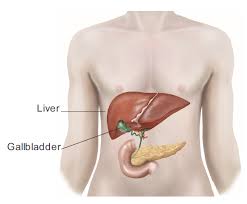 Although it is just a small organ, the gallbladder is used in the effective processing of food and nutrients. However, there are a few specific circumstances in which some or all of the gallbladder must be removed. Gallbladder surgery is one of the most common surgeries in the world. But what does the gallbladder actually do? Why would you need gallbladder surgery? And what can you expect from gallbladder surgery recovery?
Although it is just a small organ, the gallbladder is used in the effective processing of food and nutrients. However, there are a few specific circumstances in which some or all of the gallbladder must be removed. Gallbladder surgery is one of the most common surgeries in the world. But what does the gallbladder actually do? Why would you need gallbladder surgery? And what can you expect from gallbladder surgery recovery?
What is the Gallbladder?
The gallbladder is only a few inches in diameter with the ability to expand and contract depending on its contents. The primary purpose of the gallbladder is producing bile. This bile is used for digestion and the eventual absorption of essential vitamins and nutrients. The gallbladder inflates as it fills with bile and empties as food passes through the small intestine, where the bile is secreted and fats are processed.
It is interesting to note that the gallbladder is not an essential organ for daily life. In many cases where the gallbladder must be removed, diet and activity are not greatly affected once the initial recovery has been completed.
Why Would you Need Gallbladder Surgery?
 There are a number of conditions which could require gallbladder surgery. One of the most common is the existence of gallstones. Gallstones, as the name suggests, are small stone-like objects within the gallbladder. Gallstones on their own are not problematic but may become so if they get lodged in a place where they should not be, such as in the bile ducts. When this happens, sharp, stinging pain can be felt in the upper right section of the abdomen.
There are a number of conditions which could require gallbladder surgery. One of the most common is the existence of gallstones. Gallstones, as the name suggests, are small stone-like objects within the gallbladder. Gallstones on their own are not problematic but may become so if they get lodged in a place where they should not be, such as in the bile ducts. When this happens, sharp, stinging pain can be felt in the upper right section of the abdomen.
Another condition which can require gallbladder surgery is cholecystitis, or inflammation of the gallbladder. Swelling and inflammation of the gallbladder can cause pain and impair digestion, as bile is not secreted properly. Instead, bile could build up and leak, causing intestinal discomfort. In cases like this, the gallbladder can be removed to reduce pain and decrease the risk of further complications.
What to Expect from Gallbladder Surgery
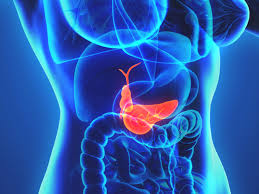 Prior to your gallbladder surgery, your surgeon will most likely want to discuss your individual case. Even though gallbladder surgery is one of the most common surgical procedures performed, every individual is different. Your doctor will most likely want to know about current medications, any pertinent medical history, and whether or not you have a family history of gallbladder problems or surgical complications.
Prior to your gallbladder surgery, your surgeon will most likely want to discuss your individual case. Even though gallbladder surgery is one of the most common surgical procedures performed, every individual is different. Your doctor will most likely want to know about current medications, any pertinent medical history, and whether or not you have a family history of gallbladder problems or surgical complications.
Your surgeon will give you specific instructions, but it is typical for a prescription to be provided that will empty the intestines to make for easier access to the gallbladder. Usually, it is important to avoid drinking or eating anything before your surgery. In a gallbladder removal surgery, or cholecystectomy, a small incision is created with the intention of removing the gallbladder itself. A small camera is inserted and used to guide the process.
Due to the relative simplicity and familiarity with gallbladder surgery, it is expected to be an outpatient procedure. That means that most people go home on the same day of having their surgery performed. However, in some cases, the doctor may wish to have a longer stay to monitor recovery. The average recovery time for gallbladder surgery is just a few weeks. However, even after the initial recovery is complete, it is important to minimize strenuous activities that could put a strain on the incision site. Heavy lifting, bending, or vigorous exercise should be limited. Talk to your surgeon for specific instructions following your surgery.
Do you think you need to have gallbladder surgery? Schedule an appointment with the best surgeons in NYC for a consultation today.
LENOX HILL MINIMALLY INVASIVE SURGERY
117 E 77th Street
Suite 1A
New York, NY 10075
646-846-1136
admin@lenoxmis.com
References
https://www.uofmhealth.org/health-library/hw106860
https://www.mayoclinic.org/tests-procedures/cholecystectomy/about/pac-20384818
https://www.webmd.com/digestive-disorders/surgery-for-gallstones#1















